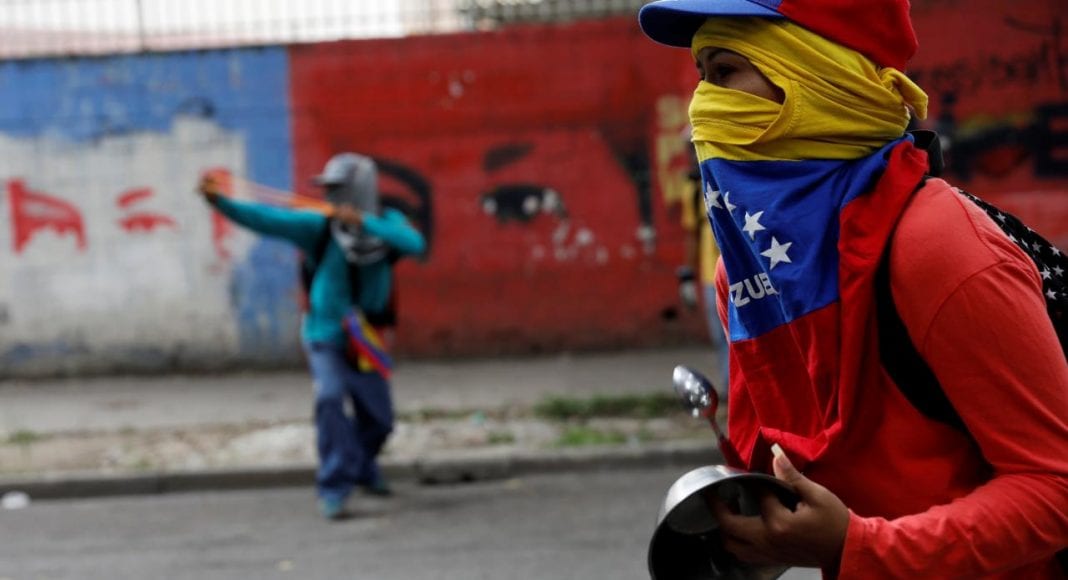Understanding the current political and socio-economic situation in Venezuela is not as simple as reading the news of the day. In order to grasp this ‘man made calamity’ according to Fernando Menendez – Economist and Senior Fellow from the Centre for Secure and Free Society, it is imperative to go back a few years when former President of Venezuela Hugo Rafael Chavez Frías was in power.
dīvide et īmpera-from Latin. Divide and conquer. In politicis and sociology, this refers to the act of gaining and maintaining power by breaking up larger concentrations of power.
Not many people are aware that Chavez Frías’ political campaign started with a coup d’état in 1992 against President Carlos Andres Perez. This sole act marked the future behaviour of President-to-be Hugo Rafael Chavez Frías. From expropriation of private companies, land and even commodity stores to denial and control of foreign exchange, Hugo Chavez slowly but surely changed the political, economic and social scenario in Venezuela.
After this so called ‘failed’ coup d’état, former President Chavez won elections in Venezuela with 56.5% support for the period of 1999-2001 and one of his most important moves on it was the relentless search for allies in the oil market – which would play an important role in the future – and the constant diplomatic confrontations with Colombia due to his support and growing relationship with Guerrilla leaders.
Nevertheless, Chavez in comparison to current President of Venezuela, Nicolás Maduro, had great charisma and was a beloved leader. His focus was the poor people of Venezuela who eventually helped him to maintain power for 14 years.
In 2004 oil prices surged, therefore, Venezuela being an oil-dependent country; the economy flourished and former President Chavez spent billions of profits on the poor class welfare. He subsidized food, and improved the educational and health care system. During this period Chavez managed to reduce poverty by more than half, according to Vox Magazine.
These programmes certainly helped the people of Venezuela and thousands benefited from them but also served Chavez’ purpose for re-election. Nevertheless, as with many politicians from oil dependent countries, interest in diversifying the economy was non-existent and when oil prices fell in 2014 his handpicked successor Nicolas Maduro, who had previously taken office, was not able to sustain all these programmes funded by the State.
Since Maduro took power in 2014, the country has become ‘measurably worse’. Poverty rates for the second half of 2016 were of 81.8%, inflation is expected to reach 2000% for the current year and after 14 years of Chavez being President, Venezuela diverted from economic freedom to one of the most repressive systems in the world, according to The Telegraph and RCN News.
Totalitarianism; The political concept that the citizen should be totally subject to an absolute state authority
On April 2017, Nicolás Maduro ripped out the democratically elected National Assembly which was constituted by Unity Roundtable or MUD (opposition party) by two-thirds majority – through the Supreme Court, an institution that is under his rule – by reducing the National Assembly’s power and creating a new National Constituent Assembly which would have the power to re-write Venezuela’s constitution.
Now, recent elections in Venezuela were not to decide whether this National Constituent Assembly should exist or not, but to elect its members.
Maduro declared victory and now there is a coalition of powers between the new National Constituent Assembly and the National Assembly and since April 2017, hundreds of Venezuelans have died in protests by the hand of pro-Government guerrillas and National Armed Forces. In addition, due to the high levels of malnutrition, the average Venezuelan has lost at least 16 pounds, according to Encovi.
A poll showed that 80% of Venezuelans want Maduro out of office but having control over the National Centre of Electors has aided Maduro and presumably Chavez as well, during his period, to obtain favourable results.





Very nice article that pretty much defines everything that’s happening in my country! keep up the good work!